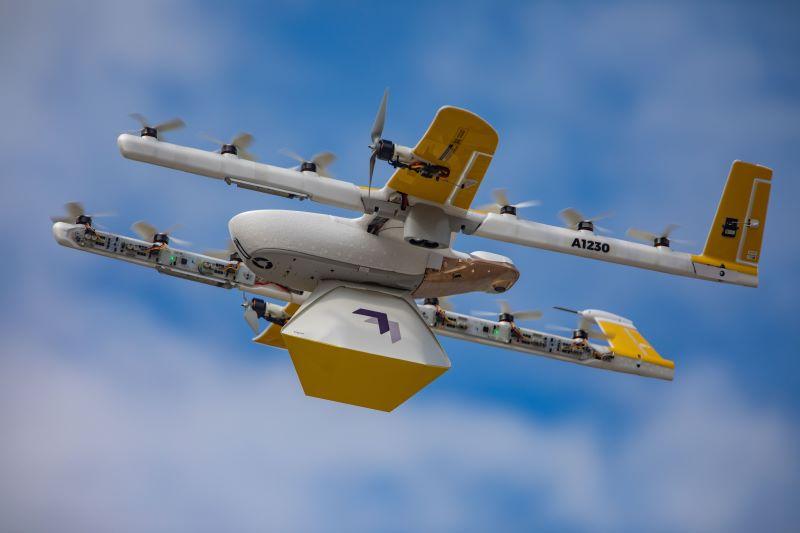Op-Ed: 2023 Is A Critical Year For Maintaining American Leadership On Aviation Innovation

Every few years, Congress enacts legislation to reauthorize the Federal Aviation Administration (FAA).
It’s a chance for voters—through elected representatives—to set aviation policy priorities and have their say on how our shared airspace is regulated in the 21st Century. I’ve been invited to testify before the House Subcommittee on Aviation later this week as part of that process. It’s an important topic, and I’m excited to share our perspective.
Congress has a unique opportunity this year to come together on a truly bipartisan effort to make sure America leads the way forward in the global drone industry. In the Senate, U.S. Sens. Mark R. Warner (D-Va.) and John Thune (R-S.D.) have already introduced legislation to increase American competitiveness in the commercial drone industry, and we’re optimistic we’ll see similar bipartisan efforts in the House as well.
Above all, we’d like to see Congress assist the FAA in adopting an approach to the safe integration of drones into our national airspace that is two things: predictable and pragmatic.
The FAA is the right regulator for uncrewed aircraft systems, but the agency currently regulates Wing’s 11 lb. foam drones using the same framework that was designed for 400,000 lb. airliners. Many of those regulations make sense for passenger-carrying airplanes, but not for small aircraft with no people onboard. For example, we’ve argued that we should be able to deliver small electronics like thermometers with batteries without needing to enact a full hazardous materials carriage program typically designed to avoid risk to passengers and crew onboard. While these same items can be carried by passengers on airplanes, Wing was denied this exception because we have no people onboard to carry the small batteries. That’s just one example of how the criteria for granting these commonsense waivers isn’t always clear, which leads to an approval process that is often slow, unpredictable and makes it difficult to scale.
The time of flying by waiver/exemption has been useful, but it’s insufficient to enable the most beneficial uses for drones. As a nation, we need to transition to flying by rule in order to use drones to effectively respond to emergencies, deliver food and medicine to homebound residents, survey infrastructure, and support other commercial drone applications that depend on predictable approval processes.
We support legislation that would call on the FAA to implement recommendations brought forward by a committee of industry and government experts, known as the Unmanned Aircraft Systems (UAS) Beyond Visual Line-of-Sight (BVLOS) Operations Aviation Rulemaking Committee (ARC). These recommended improvements would streamline and standardize the approval process while maintaining safety as the top priority. This would be a much better framework than continuing to rely on exemptions from a set of rules designed for passenger-carrying airplanes.
We also support proposals to centralize and elevate these types of approvals to a new leadership role at the FAA, the Associate Administrator of UAS Integration. Upleveled from its current coordinating role, the new Associate Administrator would be equipped with the tailored expertise and authority to review and approve applications for safely operating drones here in the United States. While maintaining the FAA’s steadfast commitment to safety, this group would be empowered to properly regulate UAS with the technology’s unique characteristics in mind and protect the safety of all airspace users.
The legislation introduced by Warner and Thune, S. 307, Increasing Competitiveness for American Drones Act of 2023, would go a long way toward addressing these and other issues. I’m excited to speak to the House Subcommittee on Aviation later this week, with the hope that we’ll see similar legislative proposals there, and then swift action in both chambers that would help America maintain its leadership on aviation innovation.
Adam Woodworth is the CEO of Wing. After joining the company in 2014, he co-led Wing in 2017 as the company graduated from X, Alphabet’s Moonshot factory, to become an Alphabet subsidiary in 2018. He helped Wing establish the largest residential drone delivery operation in the world, with commercial services in Australia, Europe, and the U.S.




